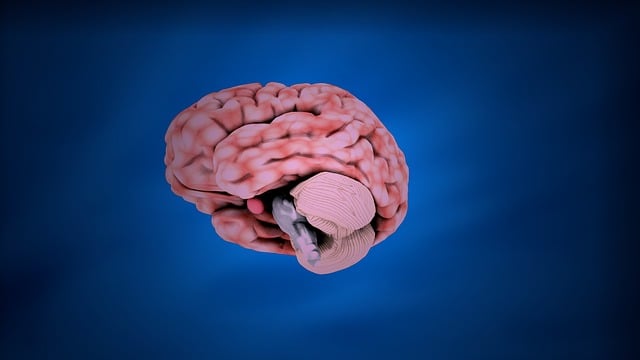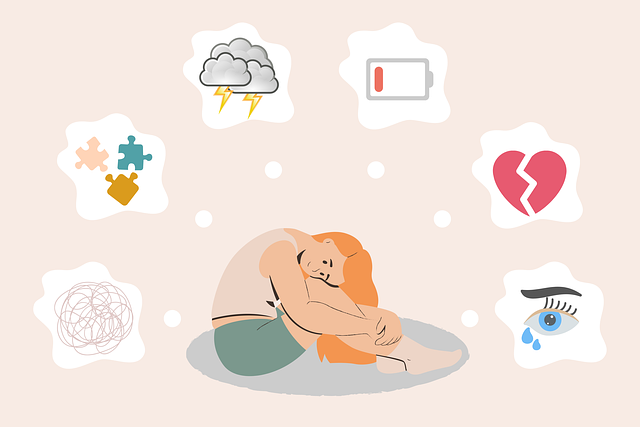Greenwood Village Alcohol Abuse Therapy leverages comprehensive mental wellness self-assessment tools for early intervention and prevention of alcohol abuse and co-occurring disorders. These user-friendly, culturally sensitive resources promote emotional well-being by encouraging self-reflection on stress levels, coping mechanisms, and interpersonal dynamics. Integrated Empathy Building Strategies enhance therapeutic outcomes while ethical considerations, including data privacy and community input, ensure trust and a safe environment for users' mental wellness journeys. Accessible through digital platforms or mobile apps, these tools empower individuals to proactively manage stress, foster resilience, and seek help when needed, contributing to healthier communities.
Mental wellness self-assessment tools play a crucial role in identifying and addressing psychological challenges. This article explores the development of such tools, particularly tailored for Greenwood Village Alcohol Abuse Therapy. We begin by understanding mental wellness and its importance, followed by identifying the pressing need for accessible assessment tools within the context of local therapy centers. Key components, design principles, ethical considerations, implementation strategies, and continuous improvement methods are discussed to empower individuals in managing their mental health effectively.
- Understanding Mental Wellness and Self-Assessment: Setting the Framework
- Identifying the Need: Why Develop Self-Assessment Tools? (Focus on Greenwood Village Alcohol Abuse Therapy context)
- Key Components of Effective Mental Health Self-Assessment Tools
- Designing and Testing the Tools: Best Practices and Ethical Considerations
- Implementation, Access, and Continuous Improvement in Community Settings
Understanding Mental Wellness and Self-Assessment: Setting the Framework

Mental wellness is a holistic concept encompassing an individual’s emotional, psychological, and social well-being. It involves understanding one’s thoughts, feelings, behaviors, and overall ability to cope with life’s challenges. Recognizing that mental wellness is not merely the absence of illness but rather a state of optimal functioning, we set the framework for self-assessment tools aimed at promoting mental health. These tools serve as gateways to introspection, encouraging individuals to reflect on their emotional states, stress levels, and coping mechanisms.
Self-assessment plays a pivotal role in early intervention and prevention strategies. By developing tools that facilitate personal exploration, we empower individuals to identify potential issues and take proactive measures. For instance, Mental Wellness Coaching Programs can be tailored to address specific concerns while building resilience. Public Awareness Campaigns development, centered around normalizing mental wellness discussions, further supports this initiative by encouraging open conversations and reducing the stigma associated with seeking help, as offered at Greenwood Village Alcohol Abuse Therapy.
Identifying the Need: Why Develop Self-Assessment Tools? (Focus on Greenwood Village Alcohol Abuse Therapy context)

In the context of Greenwood Village Alcohol Abuse Therapy, the need for comprehensive mental wellness self-assessment tools is paramount. While traditional therapeutic approaches play a vital role in treating alcohol abuse and related issues, there’s a growing recognition that personalized, proactive strategies are essential to long-term recovery. Many individuals seeking help at Greenwood Village struggle with co-occurring disorders or face unique challenges that require tailored interventions. Therefore, developing self-assessment tools becomes crucial, not just for initial screening but also as ongoing resources for stress management and emotional well-being.
These tools can empower clients to take a proactive stance in understanding their mental health. By assessing factors like emotional intelligence, positive thinking patterns, and overall stress levels, individuals can gain valuable insights into their mental wellness. This early detection and self-awareness are key to preventing relapse and fostering sustainable recovery. Greenwood Village Alcohol Abuse Therapy aims to provide its clients with the skills and resources needed to navigate life’s challenges, promoting a holistic approach to mental wellness that extends beyond traditional therapy sessions.
Key Components of Effective Mental Health Self-Assessment Tools

Effective mental health self-assessment tools are multifaceted and well-designed to provide individuals with a comprehensive understanding of their emotional and psychological state. These tools should incorporate several key components to ensure accuracy and usefulness. Firstly, they must be user-friendly, employing straightforward language and simple, easy-to-follow formats. This accessibility ensures that users from diverse backgrounds can complete the assessment without barriers or confusion.
Secondly, such tools should include a wide range of questions or prompts that delve into various aspects of mental health, including emotional regulation, stress management, and interpersonal dynamics. By addressing these areas, self-assessment tools can uncover underlying issues and provide insights tailored to each individual’s unique experience. Incorporating Empathy Building Strategies within these assessments further enhances their value, fostering a deeper understanding between the user and the tool, ultimately promoting Mental Health Awareness and Emotional Well-being Promotion Techniques.
Designing and Testing the Tools: Best Practices and Ethical Considerations

When developing mental wellness self-assessment tools, it’s crucial to balance effectiveness with ethical considerations. Best practices involve ensuring cultural sensitivity, privacy protection, and data security. The tools should be designed with input from diverse communities to avoid bias and accurately reflect various experiences. User testing is essential; feedback from individuals across different demographics helps refine the tool, making it more inclusive and valuable for everyone seeking mental wellness support, including those who may turn to Greenwood Village Alcohol Abuse Therapy for help.
Ethical considerations demand transparency about how data will be used and stored. Users must be informed of their rights regarding access, correction, and deletion of their information. This is particularly important in the context of self-care practices and depression prevention initiatives, where promoting healthy stress management workshops through organizations can benefit users. Ensuring these ethical standards contributes to building trust with users, fostering a safe environment for them to engage with the tool, and ultimately improve their mental wellness journey.
Implementation, Access, and Continuous Improvement in Community Settings

Implementing mental wellness self-assessment tools in community settings like Greenwood Village Alcohol Abuse Therapy can significantly enhance access to care and support. These tools, often digital platforms or mobile applications, provide individuals with convenient and confidential means to evaluate their mental health status. By integrating such initiatives, communities can ensure early detection of potential issues, encouraging proactive seeking of assistance. For instance, self-assessment apps can offer personalized recommendations for stress management techniques or signpost users towards suitable mental wellness coaching programs development tailored to their needs.
Continuous improvement is paramount in this context, and community feedback plays a pivotal role. Regular reviews and updates based on user experiences ensure the tools remain relevant and effective. This iterative process involves gathering insights from both end-users and healthcare providers, especially those involved in burnout prevention strategies for healthcare providers. Incorporating such feedback can lead to enhanced functionality, improved user interfaces, and more accurate assessment algorithms, fostering a healthier community ecosystem.
The development of mental wellness self-assessment tools is a crucial step towards empowering individuals, especially those seeking support at Greenwood Village Alcohol Abuse Therapy. By incorporating key components and adhering to best practices, these tools can effectively gauge mental health status, offering valuable insights for tailored interventions. Continuous improvement through user feedback and regular testing ensures their relevance and effectiveness in diverse community settings, ultimately enhancing access to care and promoting better mental wellness outcomes.














